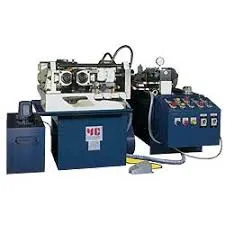
-
 Afrikaans
Afrikaans -
 Albanian
Albanian -
 Amharic
Amharic -
 Arabic
Arabic -
 Armenian
Armenian -
 Azerbaijani
Azerbaijani -
 Basque
Basque -
 Belarusian
Belarusian -
 Bengali
Bengali -
 Bosnian
Bosnian -
 Bulgarian
Bulgarian -
 Catalan
Catalan -
 Cebuano
Cebuano -
 Corsican
Corsican -
 Croatian
Croatian -
 Czech
Czech -
 Danish
Danish -
 Dutch
Dutch -
 English
English -
 Esperanto
Esperanto -
 Estonian
Estonian -
 Finnish
Finnish -
 French
French -
 Frisian
Frisian -
 Galician
Galician -
 Georgian
Georgian -
 German
German -
 Greek
Greek -
 Gujarati
Gujarati -
 Haitian Creole
Haitian Creole -
 hausa
hausa -
 hawaiian
hawaiian -
 Hebrew
Hebrew -
 Hindi
Hindi -
 Miao
Miao -
 Hungarian
Hungarian -
 Icelandic
Icelandic -
 igbo
igbo -
 Indonesian
Indonesian -
 irish
irish -
 Italian
Italian -
 Japanese
Japanese -
 Javanese
Javanese -
 Kannada
Kannada -
 kazakh
kazakh -
 Khmer
Khmer -
 Rwandese
Rwandese -
 Korean
Korean -
 Kurdish
Kurdish -
 Kyrgyz
Kyrgyz -
 Lao
Lao -
 Latin
Latin -
 Latvian
Latvian -
 Lithuanian
Lithuanian -
 Luxembourgish
Luxembourgish -
 Macedonian
Macedonian -
 Malgashi
Malgashi -
 Malay
Malay -
 Malayalam
Malayalam -
 Maltese
Maltese -
 Maori
Maori -
 Marathi
Marathi -
 Mongolian
Mongolian -
 Myanmar
Myanmar -
 Nepali
Nepali -
 Norwegian
Norwegian -
 Norwegian
Norwegian -
 Occitan
Occitan -
 Pashto
Pashto -
 Persian
Persian -
 Polish
Polish -
 Portuguese
Portuguese -
 Punjabi
Punjabi -
 Romanian
Romanian -
 Russian
Russian -
 Samoan
Samoan -
 Scottish Gaelic
Scottish Gaelic -
 Serbian
Serbian -
 Sesotho
Sesotho -
 Shona
Shona -
 Sindhi
Sindhi -
 Sinhala
Sinhala -
 Slovak
Slovak -
 Slovenian
Slovenian -
 Somali
Somali -
 Spanish
Spanish -
 Sundanese
Sundanese -
 Swahili
Swahili -
 Swedish
Swedish -
 Tagalog
Tagalog -
 Tajik
Tajik -
 Tamil
Tamil -
 Tatar
Tatar -
 Telugu
Telugu -
 Thai
Thai -
 Turkish
Turkish -
 Turkmen
Turkmen -
 Ukrainian
Ukrainian -
 Urdu
Urdu -
 Uighur
Uighur -
 Uzbek
Uzbek -
 Vietnamese
Vietnamese -
 Welsh
Welsh -
 Bantu
Bantu -
 Yiddish
Yiddish -
 Yoruba
Yoruba -
 Zulu
Zulu
CE Certified Hydraulic Threading Machine - Precision and Efficiency
CE Certification for Hydraulic Threading Machines Ensuring Safety and Compliance
The hydraulic threading machine is an essential tool in various industrial applications, particularly in the construction, plumbing, and manufacturing sectors. These machines are designed to create precise threads on pipes, rods, and other cylindrical materials, effectively facilitating secure and tight connections. However, to ensure their safe and efficient operation, obtaining CE certification is crucial.
CE certification indicates that a product meets the essential health, safety, and environmental protection standards set by the European Union. For hydraulic threading machines, this certification demonstrates compliance with directives that focus on machinery safety, electromagnetic compatibility, and pressure equipment. Manufacturers seeking CE certification must undergo a rigorous testing and assessment process to ensure that their machines adhere to these standards.
The significance of CE certification extends beyond legal compliance; it instills confidence in users and stakeholders regarding the safety and reliability of the machinery. When a hydraulic threading machine is CE certified, it signifies that the machine has been tested for risks associated with mechanical operation, electrical safety, and hydraulic pressure. This not only enhances the credibility of the manufacturer but also assures operators that they are using a product designed to minimize hazards.
ce certification hydraulic threading machine

To achieve CE certification, manufacturers must follow specific steps. First, they conduct a thorough risk assessment, identifying potential hazards that the machine may present during operation. This assessment informs the design and manufacturing process, allowing for the implementation of safety features such as emergency stop buttons, safety guards, and pressure relief valves. Following this, the manufacturer must compile technical documentation that outlines the machine’s design, functionality, and safety measures.
Next, the manufacturer may need to engage a notified body, an independent organization designated by an EU country to assess conformity with the relevant regulations. This body will evaluate the hydraulic threading machine against the applicable standards and may perform additional testing. Upon successful assessment, the manufacturer receives a CE mark, allowing them to market their machine within the European Economic Area.
In addition to meeting legal requirements, CE certification can enhance a manufacturer’s competitive edge. With increasingly stringent safety regulations and a growing emphasis on sustainability, having a certified product can be a decisive factor for customers. It assures them that the hydraulic threading machine not only performs effectively but also aligns with regulatory standards, thus reducing liability risks.
In conclusion, CE certification plays a vital role in the production and operation of hydraulic threading machines. By ensuring compliance with stringent safety standards, manufacturers contribute to a safer industrial environment while enhancing their marketability. As industries evolve, the importance of such certification will only continue to grow, emphasizing the need for quality and safety in machinery operations.
